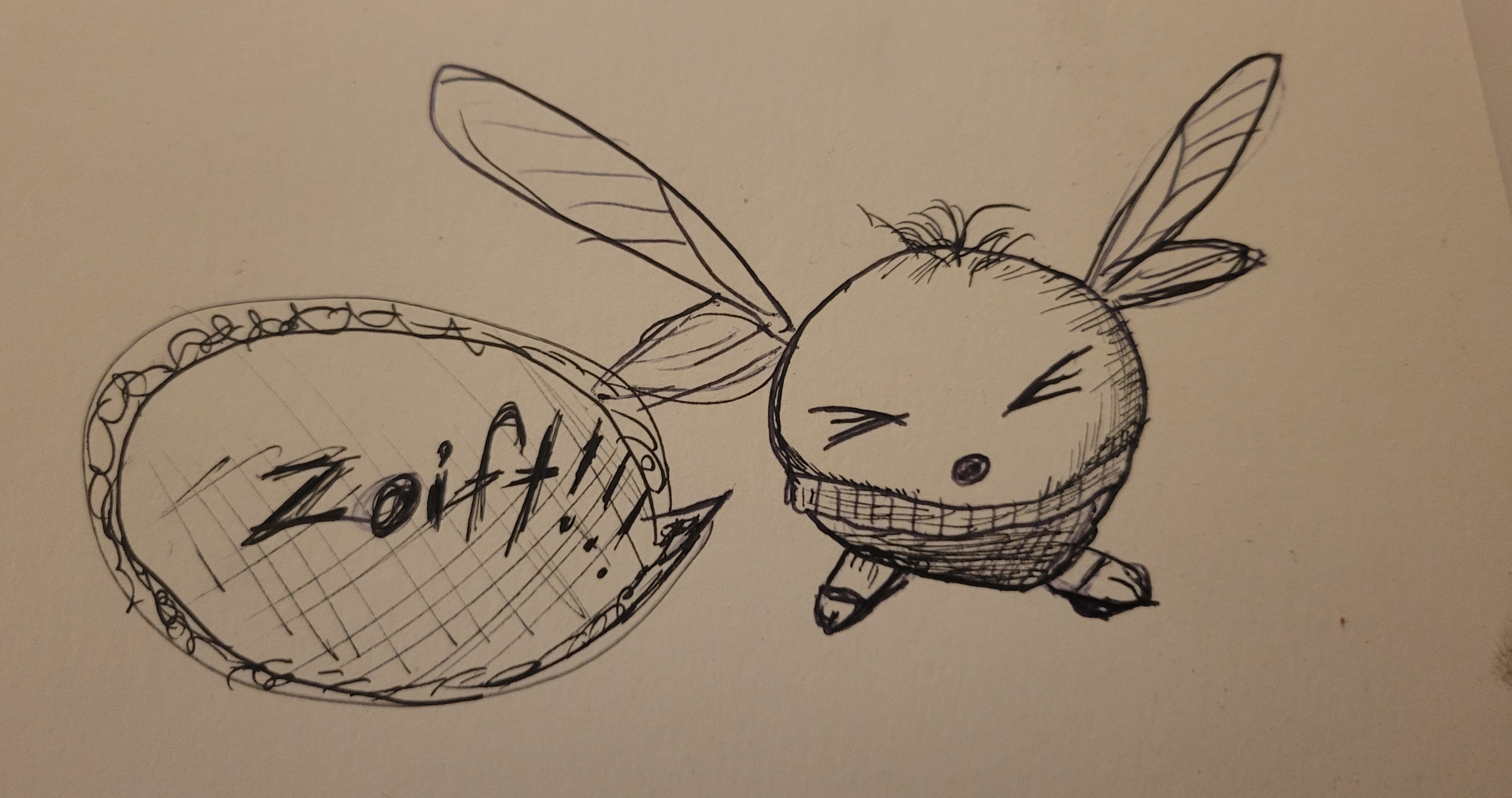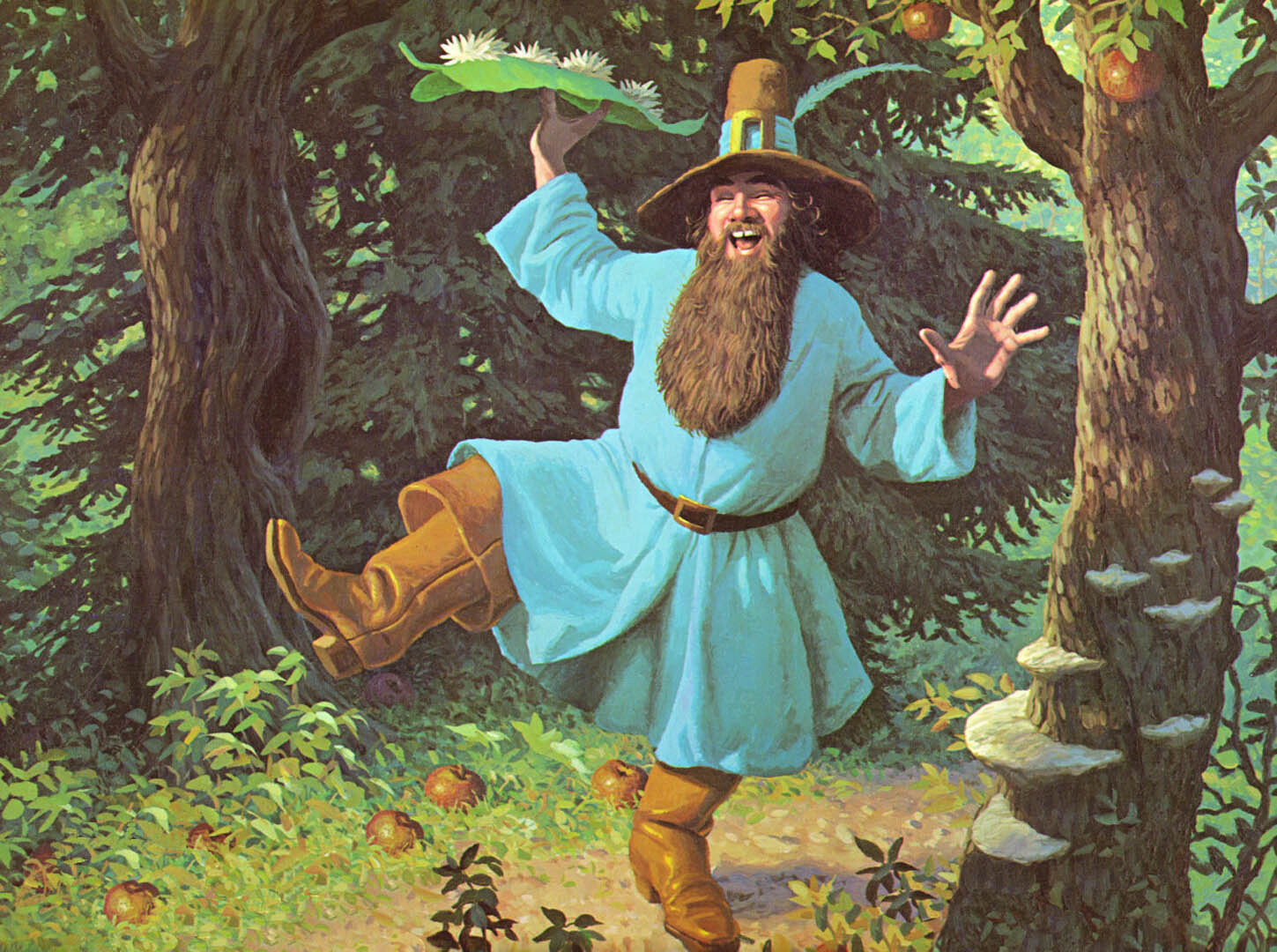He is not a hobbit, neither a man, but what is he? Is he a dwarf? A wizard? A god? Something else entirely?
As far as I know Tom is left as an enigmatic character and never explained. Just a strange encounter to make the world seem larger and more mysterious.
Would say Tom is chaotic-good, while Q on the other hand might be chaotic-neutral?
He’s a merry fellow, bright blue his jacket is and his boots are yellow.
Hey Derry doll I'm just a merry fellow! In nature I dwell with the trees and green things. With my Goldberry I wonder the old wood and tend to the Withywindle! Come now little folk sing my songs! Derry werry old Tom is singgginggg now. Down the river and over the hill he wonders! Herry ho merry fellow!
Where did you get the snazzy bright blue jacket and yellow boots?
My blue jacket was woven from lost sheep's wool. Fatty Lumpkin ohh he told the sheep I'd treat them well and I'm exhange I got this coat! My yellow boots I crafted to always remind me off my beautiful Goldberry! Oh hey hoo my Goldberry with hair of Gold she the river womans daughter now my wife!
He is a character who is not connected to the main conflict in the story in any way, and is meant to show that the world of middle earth is much larger and more mysterious than what the hobbits/men/elves/orcs are fighting over. His back story was left as a mystery on purpose. The simplest explanation to accept is that you’re just not supposed to know.
There is a whole lot of fan theory and actual letters from Tolkien himself explaining (or rather not explaining) the character.
Some had suggested he was the spirit of "JRR Tolkien" placed into his own book
Tom represents the incomplete knowledge of mankind and our pre-modern inability to firmly grasp the natural world we live in (and to some extent our continued struggle).
The fantasy world of Middle-Earth is in most ways supernatural to our own. So how much more incomplete would our understanding and knowledge of it been?
Tolkien was a professor of language and mythology and steeped in the ancient epics of the Anglo-saxons and Norse cultures. His career was putting together what these people knew and how they saw the world, but also what they couldn't understand and how they explained their ignorance.
Others here are hinting at what Tom is, but not why he is. He's a manifestation of ignorance. That's why pinning him down is so tricky. It's like pointing at a shadow with a flashlight.
Very good analogy. Questioning Tom Bombadil's role in Middle Earth is the reason Tolkien included him, in my mind at least. The reader sees him as mysterious, mystical, alien, and seemingly detached from the world around him. And we try to fit him into the rest of the world, but not everything fits into nice little boxes. Some aspects of life will always be unknowable. The same goes for history and myth, which Tom seems to be very related to.
Tolkien was just retelling legends, folktales, fairy tales, children's bedtime stories etc. He did piece them together to create extended connected lore, but not everything gets cleanly explained away in this kind of worldbuilding technique.
So really imo Tom Bombadil is just some contrivance of Tolkien to make the story feel more like some old fairy tale.
The Legendarium represents the cultural perspective of the Noldor and the Men who adopted much of their cultural tradition. It's not an objective history, and some things that exist in the world, such as Tom Bombadil and Ungoliant, aren't really accounted for by the Noldor cosmology, even though these beings are known to them.
Similarly, Morgoth isn't just an Elvish version of Satan, he's Satan himself as the Elves understood him - with the implication that Satan is just the same being, viewed through the Abrahamic tradition.
One thing I like a lot about LotR is that it's incredibly detailed and thorough, but there are still some things that simply exist regardless. In a world where magic is real, it wouldn't make sense if everything had an explanation.
Eldest, that's what Tom Bombadil is.
Edit: In Magic The Gathering, he's listed as a god.
When I read about him, the first thing that came to mind is the concept of the "original man" from Manichaeism. However, the Lord of the Rings, being a trilogy that owes itself to Catholicism, would rule anything relating to Manichaeism out as a correct interpretation.





